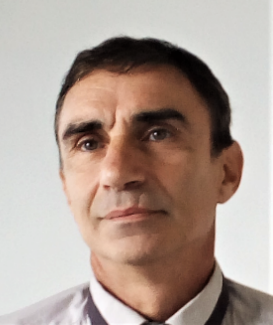 CHANKOV, Georgi (chankov_g@unwe.bg)
CHANKOV, Georgi (chankov_g@unwe.bg)
Georgi Chankov is currently an Associate Professor at the Department of International Relations, University of National and World Economy, Sofia. Academic courses: “European integration”, “Theory of international relations”, “European civilization and culture” and “Global corporative management”. Sc.D. in International Economic Relations.
Since 1995, Prof. Chankov has been a guest lecturer at FDIBA - German Department of Management (accredited by the Braunschweig Technical University, Germany), Technical University, Sofia. Academic course: “International management” (in German). In 2019, he was a guest lecturer at Heilbronn University, Germany. Academic course: “International logistics” (in English).
Prof. Chankov was also a visiting fellow at: Karlsruhe Institute of Technology, RWTH Aachen University, Germany, University of Hanover and Braunschweig University of Technology (Germany), University of Economics, Bratislava (Slovakia).
Prof. Chankov is the author of 5 scientific articles, devoted to the “One Belt One Rad” project. He is also the author of 8 monographs and books, incl. а three-volume study “The European Union from a Systematic Perspective”.
Research Overview
From the beginning of the 21st century the trade between China and the EU is growing at such a pace that logistical problems are emerging - congestion on the Suez Canal and insufficient capacity in the EU's main ports. Alternative solutions need to be sought. Defining "One Belt - One Road" project as a strategic project can allow the EU to manage its internal crises and successfully fit into the process of transition to a new international system.
But the EU does not have its own response to China's strategic project, 9 years after it was announced. The attitude towards him is passive and full of suspicion.
However, the new opportunities that arise with the relocation of the economic center of the world to the East are provoking reactions at academic level. In 2018 the Vienna Institute for International Economic Research is developing a concept for a more active EU policy and the implementation of the 11,000 km European Silk Road. The project follows the geoeconomic logic revealed in the Theory of trade routes. It requires centralized planning and financing of trans-European transport networks (TENNs) and an increase in their density in transport-lagging Eastern Europe.
The financing seems to be within the power of the EU, the question is in the priorities: the new European Commission prefers investments in green energy, the so-called "Green Deal". The European Silk Road does not seem likely to receive political support, despite its logic.The EU currently does not have the intellectual and political resources to respond to the Chinese initiative.